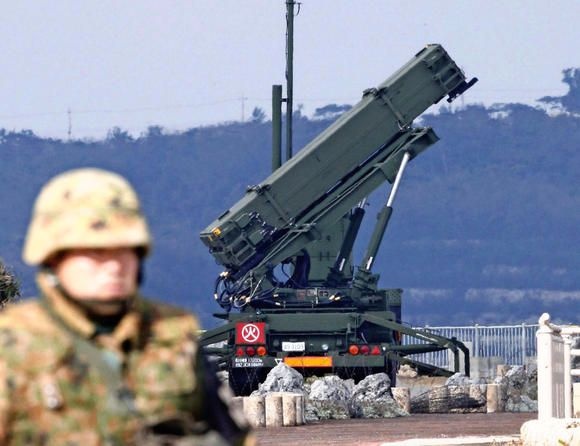
TOKYO -- North Korea has been particularly active this year in demonstrating its nuclear and missile capabilities. Japan, in turn, is quietly stepping up its preparations in case Pyongyang does the unthinkable.
In January, North Korea claimed to have successfully tested a hydrogen bomb. The Kim Jong Un regime has also fired off a series of intermediate-range ballistic missiles, including a launch as recently as Oct. 20.
The day after that launch, a new notice appeared on a civil protection website run by Japan's Cabinet Secretariat. The document, a supplement to a downloadable booklet called "Protecting Ourselves against Armed Attacks and Terrorism," outlines emergency measures in the event North Korean missiles approach the country.
Specifically, the document covers step-by-step, illustrated procedures in case the government issues an alert for three scenarios: 1) it believes missiles could strike Japanese territory; 2) missiles have passed over Japanese territory; and 3) missiles have fallen into the sea outside Japanese waters.
For the first scenario -- obviously the most critical -- the document urges people to take shelter indoors, preferably in a sturdy building or underground shopping arcade.
This appears to be the first time Japan's government has given detailed instructions regarding the threat of a North Korean attack. Yet, the country has a long way to go to be truly prepared. The government still needs to work with municipalities to stage evacuation exercises. New legislation and tax reforms may be needed to encourage the development of adequate shelters.
Technical weakness
Meanwhile, a defense technology symposium held in Tokyo earlier this month looked at possible countermeasures.

Generally, the government has kept mum on the saturation threat. But the engineer openly acknowledged it, and said a solution might be laser weapons that can be fired continuously.
A number of technical hurdles stand in the way, however. While the U.S. has succeeded in shooting down a drone with a laser, it is unclear how long it will take to create a weapon that can destroy ballistic missiles.
For engineers who are looking squarely at Japan's security realities, the symposium was a chance to make their voices heard. Nevertheless, the country will have to live without an adequate shield for now.



